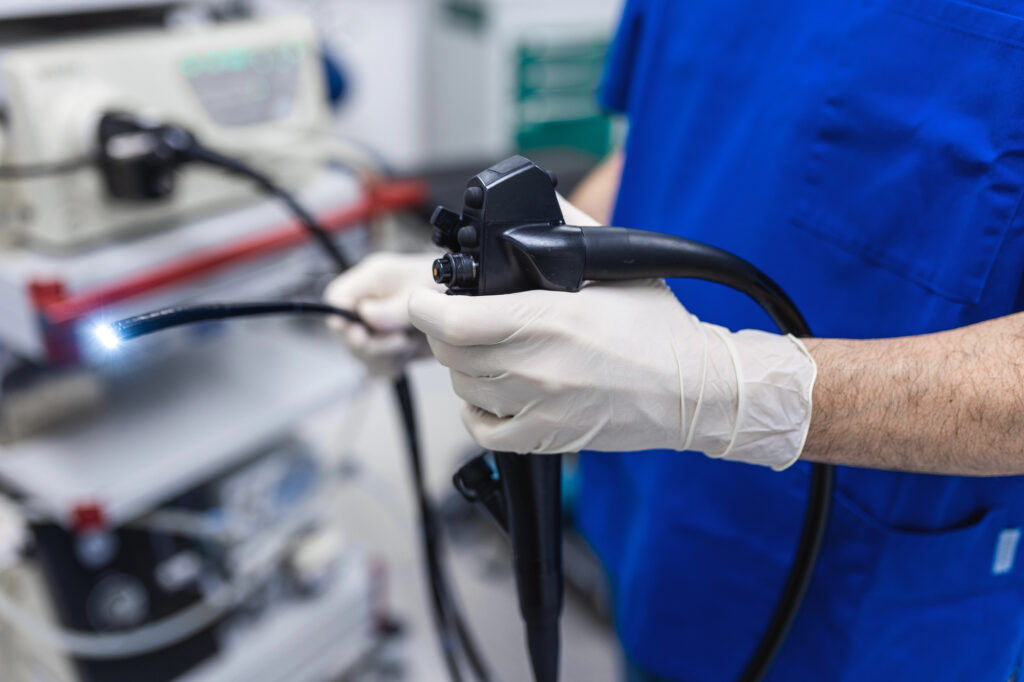A colonoscopy is more than just a medical procedure — it could be the key to a healthier, longer life. If you’re considering scheduling a colonoscopy or have one on the horizon, you probably have some questions, and rightly so. What’s the process like? How do you prepare? Why is it even necessary?
This guide will break down everything you need to know about colonoscopies, from their importance in colon cancer screening to tips on preparing and understanding your results. Whether you’re here for information or peace of mind, GAP has you covered.
Ready to schedule your colonoscopy or talk to our experienced team today? Simply give us a call at (336) 448-2427.
Why Should I Get a Colonoscopy?
A colonoscopy isn’t just about spotting digestive issues; it’s an essential preventative measure for your overall health.
Colon Cancer Screening
Colon cancer is one of the most common and preventable cancers when detected early. Colonoscopies allow your gastroenterologist to remove polyps—small growths that can develop into cancer—before they become a problem. Regular screenings are particularly recommended for adults aged 45 and older or sooner for others who have family history of colon cancer.
Digestive Health Check
Are you dealing with unexplained abdominal pain, rectal bleeding, or changes in bowel habits? A colonoscopy can help diagnose conditions like inflammatory bowel disease (IBD), Crohn’s disease, or colitis. This means you can start treatment sooner and improve your quality of life.
Peace of Mind
If you’ve been experiencing unusual symptoms or are in an at-risk demographic, a colonoscopy offers clarity. Knowing the state of your digestive health can ease anxieties and empower you to take control of your well-being.
How Do I Prepare for a Colonoscopy?
Prepping for a colonoscopy may sound intimidating, but a little preparation can make the process much easier.
Follow a Specific Diet
A few days before your procedure, your doctor will likely recommend switching to a low-fiber diet. The day before your colonoscopy, you’ll move to a clear liquid diet, which includes water, broth, and clear juices. Avoid red or purple liquids to ensure accurate results.
Use the Prescribed Bowel Prep
Your gastroenterologist will provide a bowel preparation solution to clean out your colon. It’s crucial to follow these instructions closely to ensure your colon is empty, giving your doctor a clear view. While the process isn’t anyone’s favorite pastime, it’s a step that directly impacts the effectiveness of the exam.
Dress Comfortably and Have a Ride Arranged
Since sedation is often used during a colonoscopy, you won’t be able to drive afterward. Make sure to arrange for someone to drive you home, and wear comfortable, loose clothing on the day of your procedure.
What Happens During a Colonoscopy?
The Process Step-by-Step
- Sedation: Before the procedure begins, you’ll be given a sedative to help you sleep.
- Insertion of the Scope: Your gastroenterologist will insert a thin, flexible tube with a tiny camera (called a colonoscope) into your rectum to examine your colon and rectum.
- Polyp Removal & Biopsy: If polyps or abnormalities are found, your doctor can remove them or take tissue samples during the process.
- Post-Procedure Recovery: The procedure itself usually takes under 30 minutes, but you can expect to be at the facility for at least a couple of hours. You will be monitored as the sedation wears off and should expect to feel groggy for a few hours afterwards.
Does It Hurt?
The good news is that thanks to modern sedation methods, most people experience no discomfort during a colonoscopy. Some may feel light cramping or bloating afterward, but this usually subsides within a few hours.
How Do I Choose the Right Gastroenterologist?
Picking the right gastroenterologist is just as important as the procedure itself.
Look for Strong Credentials
Verify that your doctor is a board-certified gastroenterologist with experience in performing colonoscopies.
Seek Recommendations
Ask for recommendations from your primary care physician or read reviews from other patients online. A gastroenterologist with a good reputation can make all the difference in your experience.
Consider the Facility
Is the clinic or hospital equipped with modern technology? Is the staff friendly, efficient, and supportive? These factors can greatly influence your comfort and confidence in the process.
At GAP, we pride ourselves on providing expert care in a patient-centered environment.
What’s Next After Your Colonoscopy?
Understanding Your Results
- Immediate Results: Your gastroenterologist will discuss anything notable they observed during the procedure, such as polyps or abnormalities.
- Tissue Sample Analysis: If biopsies were taken, your doctor will reach out when those results are available to explain what the findings mean for your health as well as any next steps.
Follow-Up Recommendations
Based on your results, your doctor might recommend lifestyle changes, follow-up screenings, or additional treatments. If everything looks good, and you’re at average risk, your next screening might be five to ten years down the road.
Get Back to Normal
Once you’re fully recovered from sedation, you can resume your regular diet and activities. Remember to drink plenty of fluids to rehydrate.
Take Charge of Your Digestive Health
A colonoscopy doesn’t have to be intimidating when you know what to expect. It’s a preventative tool that can save lives by catching potential issues early and keeping your digestive system in top shape.
If you’re due for a screening or have concerns about your digestive health, the expert gastroenterologists at GAP are here to help. Contact us today at (336) 448-2427 to schedule your colonoscopy and take the first step toward better health.

